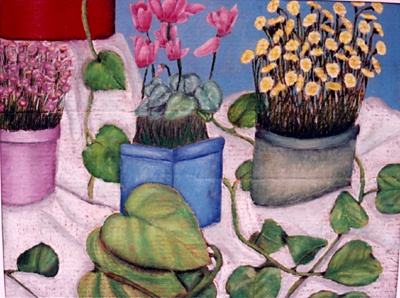All Nonfiction
- Bullying
- Books
- Academic
- Author Interviews
- Celebrity interviews
- College Articles
- College Essays
- Educator of the Year
- Heroes
- Interviews
- Memoir
- Personal Experience
- Sports
- Travel & Culture
All Opinions
- Bullying
- Current Events / Politics
- Discrimination
- Drugs / Alcohol / Smoking
- Entertainment / Celebrities
- Environment
- Love / Relationships
- Movies / Music / TV
- Pop Culture / Trends
- School / College
- Social Issues / Civics
- Spirituality / Religion
- Sports / Hobbies
All Hot Topics
- Bullying
- Community Service
- Environment
- Health
- Letters to the Editor
- Pride & Prejudice
- What Matters
- Back
Summer Guide
- Program Links
- Program Reviews
- Back
College Guide
- College Links
- College Reviews
- College Essays
- College Articles
- Back
Plant-based For the Planet
The world’s population is growing and our planet is dying. There’s no way of sugar-coating it.
Unless action is taken to improve our current climate, my generation are likely to witness utter destruction of our planet. More wildfires and drought, declining water supplies and damaging storms. And that’s just the tip of the melting iceberg.
We are also likely to see the number of people in extreme poverty continue to rise as climate change limits food supplies, disrupts livelihoods and forces people into poverty. There are obviously many causes to both these problems, but a big factor is animal agriculture.
In 2020, there are approximately 690 million people starving every single day yet there’s enough food to feed approximately 70 billion farm animals.
While there’s enough food to feed more than the entire world’s population, a significant percentage is being fed to our farm animals from meat and dairy industries. And because of this global reliance on these industries, people are missing out.
Simply put, the more people that eat meat, the less people can be fed.
Meat consumption not only harms those in poverty, animal agriculture also has negative effects on our environment and plays a significant role in climate change.
And it’s not just governments who need to be accountable, individuals need to realise the part they play in this as well.
We grow enormous amounts of grains, soy and corn to feed animals that get killed for food. In Australia, about 54% of our land is used for livestock and about 3.8% of our land is used to grow plant foods. If we instead used the world’s animal farmland to grow crops to feed people, we could easily feed everyone on the planet through affordable plant foods.
Animal farming uses an incredible amount of our resources like land used for grazing as well as growing food for the animals. These food systems create pollution, water depletion and have massive impacts on biodiversity. Meat and dairy are an incredibly inefficient food source as they provide the world with about 18% of our calories but take up so much land. The production of beef results in 105 kg of greenhouse gases per 100g of protein, whereas tofu produces less than 3.5kg of these gases for the same amount of protein.
Essentially, the meat industry is bad news for our climate.
As David Attenborough said in his recent documentary, ‘A Life on Our Planet’, human beings have overrun the world.
But it’s not too late.
There is something we can all do today that can help lead us along this hopeful path. Consume less animal products. As Attenborough said, “the planet cannot support billions of large meat-eaters, there just isn’t the space”.
Every time you buy some bacon, you are directly telling the companies that you want more pigs killed.
So, the more we switch towards plant-based options, the more sustainable our food systems can become as growing plants is far less taxing on the environment.
Considering the amount of vegan alternative options there are today, this really isn’t the most difficult switch. There are vegan burgers, nuggets, cheese, basically anything you think you would miss. Well-planned vegan diets have been deemed as healthy at any stage of the lifespan by the Academy of Nutrition and Dietetics; many studies, including one from the Journal of the American Heart Association have shown that a diet full of plants can lower the risks of many diseases.
This switch doesn’t have to happen all at once, though. Maybe you start by making one meal plant-based or perhaps one day a week, you consume no animal products. However you decide to make this switch, it’s time to act now because it’s your future, too and you can make a difference.

Similar Articles
JOIN THE DISCUSSION
This article has 0 comments.

The impacts our lives have on the environment is something very important to me. I wanted to write something to help people understand how we can all make a difference in making the world a better place.